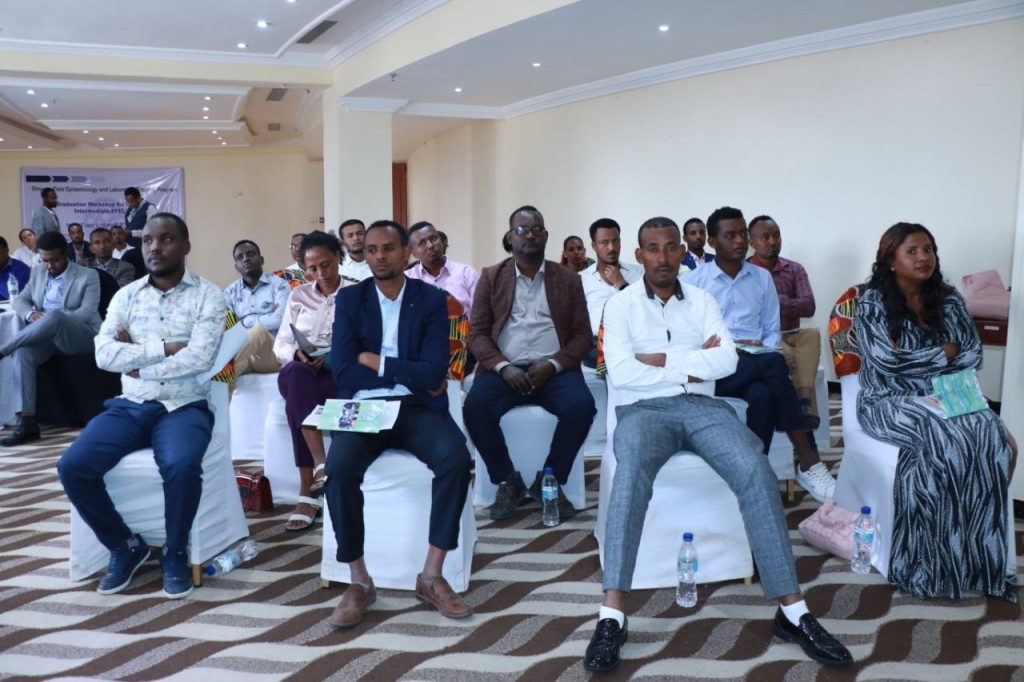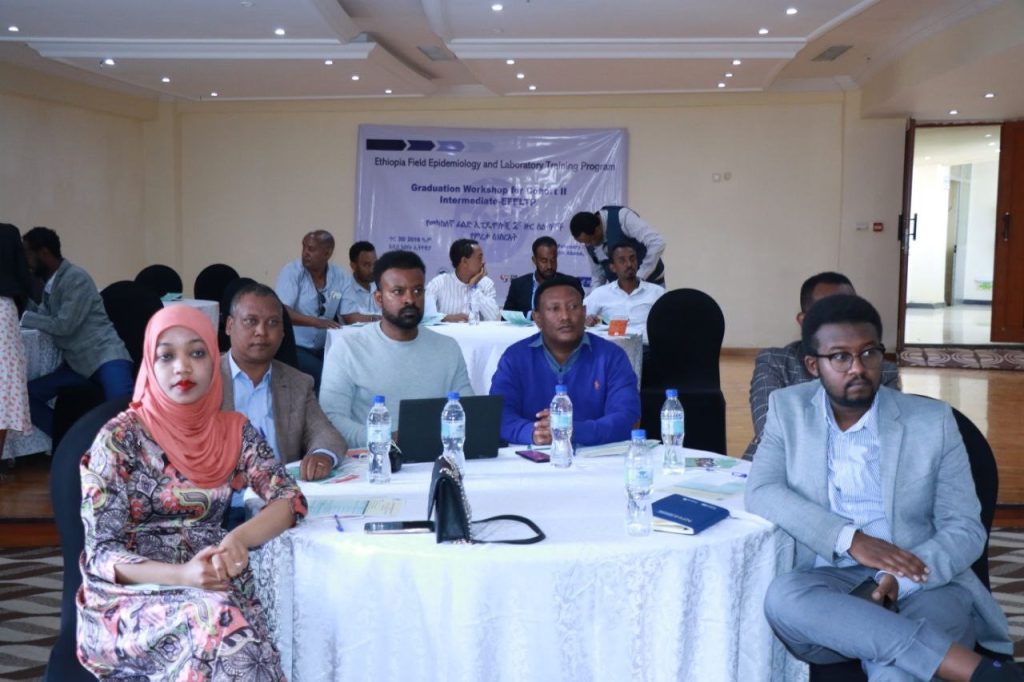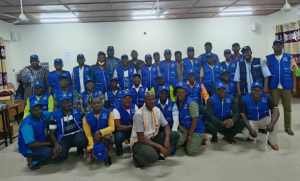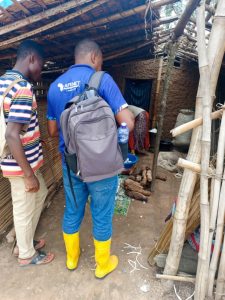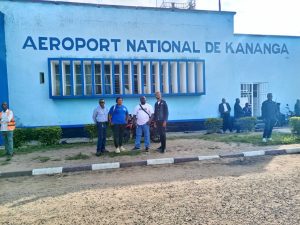2nd cohort of Ethiopia Intermediate Field Epidemiology Training Program trainees graduates
-
by
AFENET
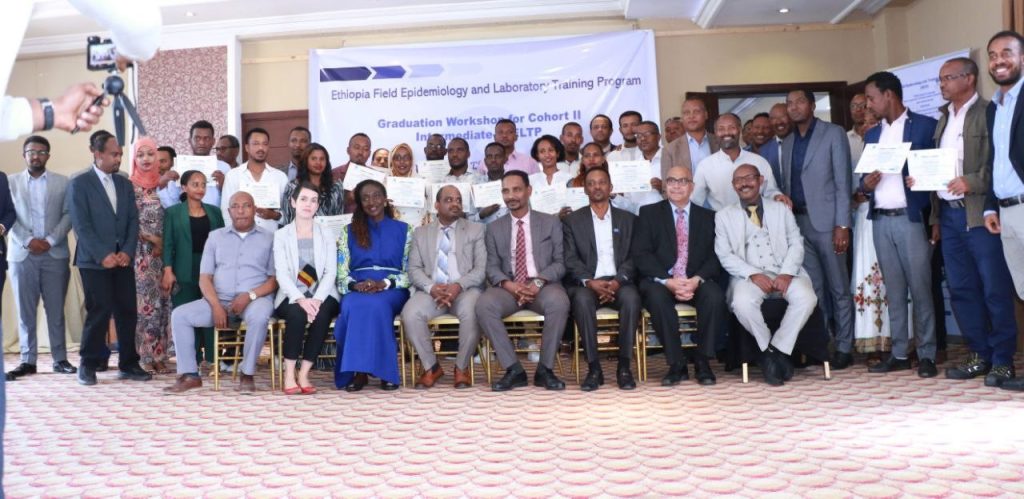
The Ethiopian Field Epidemiology and Laboratory Training Program (FELTP) in the Ministry of Health, in collaboration with partners, celebrated the graduation of 18 intermediate Field Epidemiology Training Program (FETP) residents on February 8, 2024. The trainees who are drawn from all regions have been studying practical and conceptual lessons in disease prevention and disease surveillance at various training centers for the past nine months.
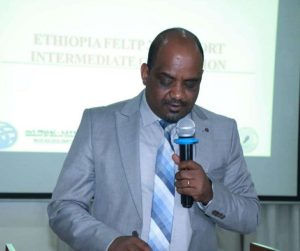
Minister of Health Ethiopia, State Minister, Dr. Ayele Teshome, attended the forum and observed that without skilled and dedicated experts, the prevention and control of Ethiopia’s public health emergencies and their impact on society cannot be avoided. For this, the field epidemiology program was started in 2009 and recognized in 2022, and it is a program that fulfills the responsibility of empowering health professionals who respond to public health risks.
Dr. Ayele urged the graduates to work effectively with the limited resources available, with commitment and professional ethics, as well as a spirit of cooperation. He thanked the US CDC, World Health Organization, Ethiopia Public Health Association (EPHA), and Ethiopia Public Health Institute (EPHI) for their technical and financial support and wished the graduates a productive and successful career.
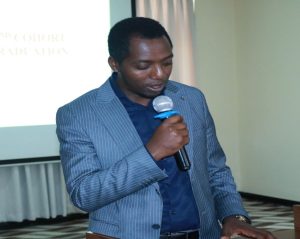
Field epidemiology is a field of training for experts working on disease surveillance and prevention, said Mr. Assegid Samuel, Executive Director of Human Resource Development in the Ministry of Health and EFELTP Program Director. The Ethiopia FELTP runs all three tiers (advanced, intermediate, and frontline) of the field epidemiology training program Mr. Assegid stated that “the aim is to strengthen the response to health emergencies and diseases that we face as a country and to empower experts working on disease screening. And also, when the trainees return to their institutions, they are expected to do a lot of work on disease prevention and screening.”
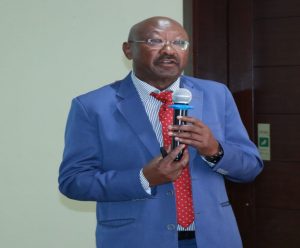
Dr. Zegeye Hailemariam, the national program coordinator at the Ministry of Health, providing a short overview of the program.
Representatives from the American Embassy, US CDC, Africa CDC, US President’s Malaria Initiative (PMI), AFENET, as well as the EPHA, EPHI, appreciated the significance of the program and called for more support.
Pledging further technical support to the program, these stakeholders asked the trainees to apply the lessons learned from the training to serve society.
Reflecting on the learning experience, Ms. Hana Abebe, one of the graduating trainees said that the training equipped them to have a good knowledge of outbreak investigation, disease surveillance, system evaluation, health profile assessment, and community health. Relatedly, Mrs. Adanech, another trainee said the training helped them to develop skills that will save the country from an epidemic, adding that she “found it to be a training that gives precaution, preparedness, prediction, early action and response to an accident, and recovery capacity for the victims.”
